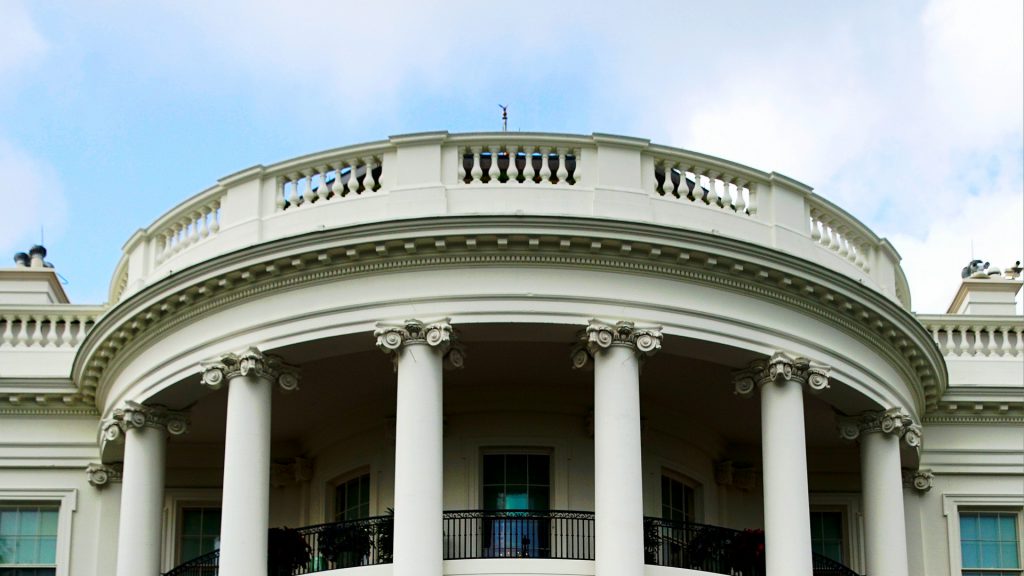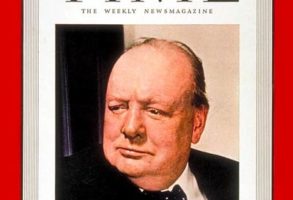
Published November 7, 2019
Harry S. Truman kept a set of Plutarch’s writings at hand in the White House. He said that in Plutarch’s “Parallel Lives,” he could find everything worth knowing about leaders—how they behave, what makes them tick.
In the “Lives,” Plutarch (A.D. 47-120) would compare a famous Greek to a famous Roman—setting Alexander the Great, for example, next to Julius Caesar, or Demosthenes beside Cicero. It was moral portraiture; Plutarch had a genius for details. He believed that a trivial detail can reveal a man more profoundly than a great event. Cicero, for example, became alert to an unexpected subtlety of Julius Caesar’s character after noticing, one day in the Senate, the way he adjusted his forelock with one finger.
Suppose Plutarch undertook to write one of his “Parallel Lives” on the subject of Donald Trump. If Plutarch were to study the biographies of the previous American presidents, to which of them would he compare the 45th?
Like Franklin D. Roosevelt, Mr. Trump is an illusionist. Like FDR, Mr. Trump has boundless confidence in himself. Like FDR, Mr. Trump has been known to lie. Unlike Roosevelt, Mr. Trump is a businessman. (FDR failed in his minor efforts at business investment during the 1920s.) Roosevelt undertook to make America great again by mobilizing the federal government against the “economic royalists” in a great depression; Mr. Trump wants to accomplish the same goal by demobilizing the regulators and resisting the cultural autocracy of the left.
Mr. Trump is best understood as a businessman and a performer. If you analyze him at the intersection of those two identities, you begin to understand him. As an actor on the world stage, his favorite role is a version of Stanley Kowalski.
Like Calvin Coolidge, Mr. Trump believes that the primary business of America is business. Like Truman, Mr. Trump has presided over businesses that failed. Unlike Coolidge, who was famously laconic, Mr. Trump is noisy.
Unlike Teddy Roosevelt and Woodrow Wilson, Mr. Trump does not read books. In that he resembles Lyndon B. Johnson and Franklin Roosevelt, both of whom preferred to gather information in conversation, face-to-face or on the telephone. Dwight D. Eisenhower read Zane Gray westerns to help him fall asleep.
LBJ liked to have three television sets going so that he could monitor the major networks simultaneously; Mr. Trump watches Fox News.
Plutarch, in a pairing of opposites, might have explored the contrast between Mr. Trump and Jimmy Carter—Mr. Carter hammering away for Habitat for Humanity, Mr. Trump putting up Trump Towers.
Mr. Trump’s enemies consider him a monster of racism. He claims to be “the least racist man who ever lived.” Twelve American presidents, starting with George Washington and Thomas Jefferson, owned slaves. Wilson was assuredly a racist. In early 1933, President-elect Roosevelt visited the state capitol in Montgomery, Ala., where Jefferson Davis had taken the oath of office as president of the Confederacy; FDR referred to it as “this sacred spot.” Truman and LBJ routinely used the N-word before they got to the White House. Yet Truman racially integrated the armed forces and Johnson told Congress “we shall overcome” as he pushed through the greatest civil rights acts in American history.
Like Julius Caesar, Mr. Trump is fussy about his hair. Unlike any other president, Mr. Trump has been married three times. (Ronald Reagan was divorced once, and five other presidents remarried after their first wives died.) Like John F. Kennedy and Bill Clinton, Mr. Trump has a history of womanizing and marital infidelity.
In a famous remark, Justice Oliver Wendell Holmes Jr. described FDR as a man with “a second-class intellect but a first-class temperament.” (The story was told secondhand, and some thought that the aged Justice Holmes was referring to the earlier Roosevelt, Teddy, whom he had also known). In fact, FDR had a first-class intellect. So, notably, did Thomas Jefferson, Abraham Lincoln, Wilson and (as a manager if not as a philosopher) Eisenhower. Mr. Trump has described himself as a “very stable genius.” On that, the jury is deadlocked. Intellectuals tend to despise Mr. Trump. They also dismissed Eisenhower and Reagan as dunces.
Edward Gibbon, author of “The History of the Decline and Fall of the Roman Empire,” summarized a half-dozen early emperors as follows: “the dark, unrelenting Tiberius, the furious Caligula, the stupid Claudius, the profligate and cruel Nero, the beastly Vitellius, and the timid inhuman Domitian.”
Think of how one might compile a similar list of modern presidents: “the glamorous, amoral Kennedy; the Machiavellian, self-destructive Johnson; the saturnine Nixon; the touchingly decent Ford; the fussy weakling Carter.”
Plutarch or Gibbon would likely have loved to write about Donald Trump and his headlong, unfiltered singularity. Would they have entertained (before rejecting it) the theory that Mr. Trump’s apparently fantastic ego is mere performance, mere misdirection? That all of the Trumpian ego is an act that has served to get and keep the world’s attention, that has gotten him elected president, and allowed him to disarm his enemies, in part by reducing them to incoherent rage and hatred?
Whether he has deployed it consciously or simply cannot help himself, his personality has taken him far in an unhappy, disrupted land. It is also about to get him impeached.
Mr. Morrow is a senior fellow at the Ethics and Public Policy Center.







